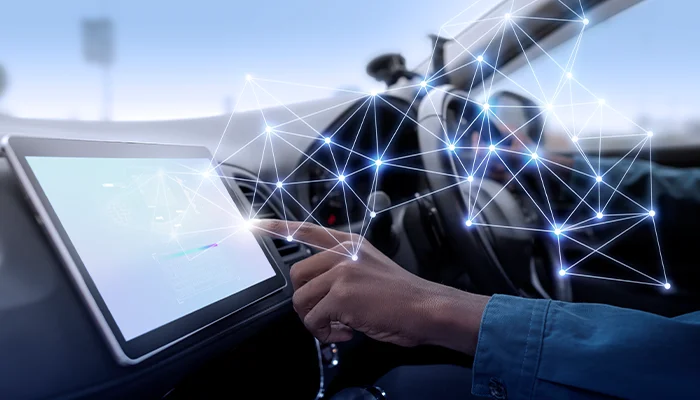
The Growth of Autonomous Vehicles: How Self-Driving Cars Will Change the Future of Transportation
December 04,
12:15 PM
The dawn of autonomous vehicles signifies a transformative shift in the landscape of transportation. With advancements in artificial intelligence, machine learning, and sensor technology, self-driving cars are no longer a distant dream but a burgeoning reality. As companies invest heavily in this technology, and regulatory bodies begin to adapt to new paradigms of mobility, the implications of autonomous vehicles extend far beyond mere convenience. This blog explores how self-driving cars are set to change the future of transportation, impacting everything from urban planning to environmental sustainability.
The Rise of Autonomous Vehicles
The development of autonomous vehicles has accelerated in recent years, driven by several key factors:
1.Technological Advancements: Innovations in AI, computer vision, and sensor technologies have made it possible for cars to navigate complex environments with minimal human intervention. Companies like Tesla, Waymo, and traditional automakers are leveraging these technologies to create increasingly sophisticated self-driving systems.
2. Consumer Demand: There is a growing demand for safer and more efficient transportation options. Autonomous vehicles promise to reduce traffic accidents caused by human error, which accounts for about 94% of all road crashes. As consumers become more aware of the benefits, the appetite for self-driving cars is expected to grow.
3. Economic Incentives: The potential for cost savings in logistics and transportation is a significant driver of interest in autonomous vehicles. Companies can reduce labor costs, improve delivery times, and optimize routes, leading to enhanced profitability.
How Self-Driving Cars Will Transform Transportation
Increased Safety: One of the most compelling benefits of autonomous vehicles is the potential for significantly improved road safety. Self-driving cars are equipped with advanced sensors and algorithms that allow them to react faster than human drivers. This technology can drastically reduce accidents, injuries, and fatalities, contributing to safer roads for everyone.
Changes in Urban Planning: As the adoption of autonomous vehicles grows, cities will need to adapt their infrastructure to accommodate them. This could mean the redesign of roads, parking facilities, and traffic management systems. Urban planners may also focus on creating more pedestrian-friendly environments, as the need for extensive parking could diminish with the rise of shared autonomous vehicle services.
Environmental Impact: Autonomous vehicles have the potential to reduce emissions and improve fuel efficiency. By optimizing driving patterns and reducing congestion, self-driving cars can lead to lower fuel consumption. Additionally, the integration of electric autonomous vehicles can further reduce the carbon footprint, contributing to cleaner urban environments.
Accessibility and Mobility: Self-driving cars can provide greater mobility for individuals who are unable to drive, such as the elderly and disabled. This increased accessibility can empower these populations, allowing them to maintain independence and access essential services, thereby enhancing their quality of life.
Changing Ownership Models: The rise of autonomous vehicles may lead to a shift away from traditional car ownership. With the proliferation of ride-sharing services and on-demand transport, people may opt for accessing self-driving cars as needed rather than owning one. This shift could lead to fewer vehicles on the road, reducing congestion and parking needs.
Challenges Facing Autonomous Vehicles
While the potential benefits of autonomous vehicles are significant, several challenges must be addressed:
1. Regulatory Hurdles: Governments around the world are grappling with how to regulate self-driving technology. Establishing standards for safety, liability, and insurance will be crucial for facilitating widespread adoption.
2. Public Perception and Trust: Gaining public trust in autonomous vehicles is essential for their success. High-profile accidents involving self-driving cars have raised concerns about safety and reliability. Ongoing education and transparent communication will be necessary to alleviate fears and build confidence.
3. Technological Limitations: While autonomous vehicles have made great strides, they are not yet perfect. Complex driving environments, such as those with unpredictable weather or intricate urban settings, can pose challenges for self-driving systems. Continued research and development are needed to address these limitations.
4. Cybersecurity Concerns: As vehicles become increasingly connected, the risk of cyberattacks rises. Protecting autonomous vehicles from hacking and ensuring the safety of user data will be paramount as the technology evolves.
The Future of Autonomous Transportation
As we look to the future, the growth of autonomous vehicles will likely usher in a new era of transportation characterized by innovation and change. Collaboration between technology companies, automotive manufacturers, regulators, and urban planners will be essential to maximize the benefits of this technology.
Integration with Smart Cities: The future of transportation may involve the integration of autonomous vehicles with smart city infrastructure. Connected traffic systems that communicate with self-driving cars can optimize traffic flow, reduce congestion, and enhance overall urban mobility.
Sustainability Initiatives: With a focus on environmental sustainability, autonomous vehicle technology can support initiatives aimed at reducing urban pollution and promoting public transport. Electric self-driving buses and shuttles may become commonplace, further enhancing the sustainability of urban transport systems.
Global Impact: The implications of autonomous vehicles extend beyond individual cities or countries. As self-driving technology matures, it has the potential to reshape global logistics, supply chains, and travel patterns, fostering a more interconnected world.
Conclusion
The growth of autonomous vehicles represents a pivotal moment in the evolution of transportation. As self-driving cars become a reality, they have the potential to transform how we move, how cities are designed, and how we approach environmental sustainability. While challenges remain, the ongoing advancements in this field inspire optimism for a future where transportation is safer, more efficient, and more accessible for all. Embracing this change requires collaboration, innovation, and a commitment to addressing the challenges ahead, paving the way for a new era of mobility.




Blockchain Solution
Launching
Testing
Contact US!
India

Plot 378-379, Udyog Vihar Phase 4 Rd, near nokia building, Electronic City, Phase IV, Sector 19, Gurugram, Haryana 122015
Copyright © 2025 PerfectionGeeks Technologies | All Rights Reserved | Policy
Contact US!
India 
Plot 378-379, Udyog Vihar Phase 4 Rd, near nokia building, Electronic City, Phase IV, Sector 19, Gurugram, Haryana 122015
USA 
1968 S. Coast Hwy, Laguna Beach, CA 92651, United States
Copyright © 2025 PerfectionGeeks Technologies | All Rights Reserved | Policy


